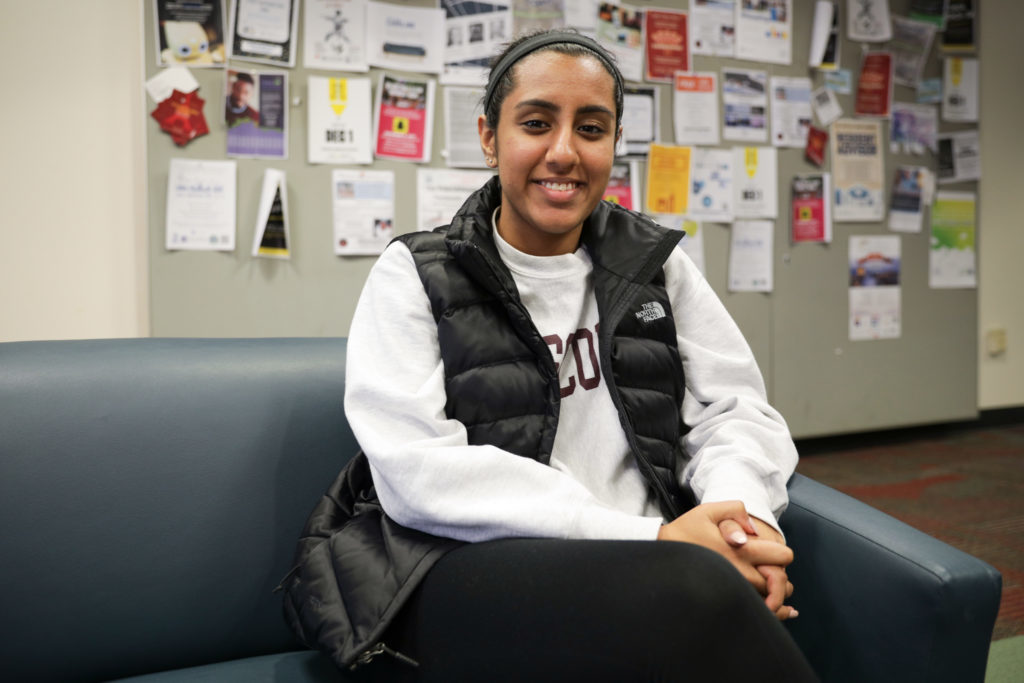The Indian Students’ Association is launching the first-ever peer undergraduate mentorship program for GW’s South Asian community later this month.
ISA leaders said the program will give younger students the opportunity to connect with an upperclassman who can give advice about adjusting to life on campus and provide older students with a chance to give back to the South Asian community, a vital part of the GW experience for many students. Organizers said these types of programs are especially important for minority students who often feel isolated at a majority-white University.
Prabhlean Kaur, a sophomore majoring in mechanical engineering and ISA’s director of community outreach, said the mentorship program – which is open to any South Asian undergraduate student – will give younger students a friendly face on campus from a similar cultural background and someone who can give academic guidance on topics like selecting courses.
“We’re not the only South Asian org – there’s dance teams, there’s other organizations,” Kaur said. “So if we have this kind of interconnecting program, then definitely I think it would bring us closer together.”
“A lot of us come from similar cultural values so we have a lot of the same ideals.”
Kaur said the ISA executive board will select the pairings based on personality traits and majors. Students can apply to the program and are accepted on a rolling basis through Sunday.
The mentorships will be causal, and the group will not have requirements about how many times the pair must meet, Kaur said. She said the program will be different from other mentorships, like big-little relationships in Greek organizations, in that the mentors will have similar cultural backgrounds and experiences as a member of the South Asian community.
“A lot of the mentors we already have in our lives are people who have done everything before us,” Kaur said. “The main idea is giving people a space, also giving them the support they need.”
ISA Freshman Representative Yash Adroja, who applied to be a mentee, said he hopes to be matched with a mentor who is also studying medicine or science – Androja is currently undecided but wants to go on a pre-med track. The pairings are often selected to match people with similar interests or majors.
He said the group is advertising the mentorship program at general body meetings, through social media and by reaching out to people personally.
“Our biggest goal after this is done is to become closer to the younger people of the South Asian community because that’s something we need to continue to build throughout the year,” he said. “And who knows? It could create a friendship that’ll last a lifetime.”
Vivek Batheja, a sophomore majoring in biology who serves on ISA’s executive board as chair of the South Asian Heritage Celebration – held each spring – said the mentorship program will offer students who are not involved in student organizations a way to still be included in the South Asian community.
“A lot of us come from similar cultural values so we have a lot of the same ideals,” Batheja said. “It’s nice to talk to someone like that who can give advice because they come from a very similar background.”
Rucha Gopal, the public relations chair of the South Asian Society and a junior majoring in international affairs, said she sometimes felt isolated as a freshman on campus and hopes the mentorship program will help students communicate to older peers when they’re feeling alone.
“A mentorship program is extremely valuable at a predominately white institution because you’re the minority.”
“As a minority student, I initially found it hard to keep in touch with my culture while at school and be able to talk to upperclassmen or mentors about issues I may be facing,” she said in an email.
Many other student groups at GW offer mentorship programs to encourage students to seek advice when they need it and have a confidant to rely upon during the transition to college life.
In 2014, the Columbian College of Arts and Sciences started a mentoring program to help first-generation students adjust to campus and tackle social and academic obstacles by providing them with peer mentors, according to a University release.
The Black Girl Mentorship, a student organization for black females that focuses on building peer-to-peer support networks, pairs members together to offer each other advice.
Shanelle Watson, a sophomore who founded the Black Girl Mentorship program, said mentorships help students feel supported and encouraged to pursue their education.
“A mentorship program is extremely valuable at a predominately white institution because you’re the minority,” she said. “You look around in a space and you don’t see many people who look like you. So already in that situation you’re at a disadvantage.”




